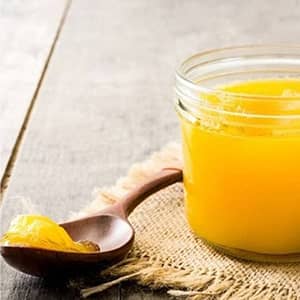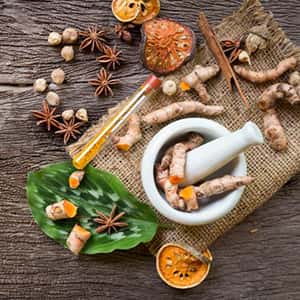An ayurvedic cleanse is a great way to reset the body and remove all toxins. It helps promote better digestion and encourages lymphatic drainage. In today’s world, stress, anxiety and poor eating habits are commonplace. This means more and more people are suffering the consequences of accumulated waste within the body, in the form of toxins, fats, and stagnant lymph. This can cause symptoms such as “brain fog”, tiredness, waking up stiff, frequent colds and poor digestion. An ayurvedic cleanse is a great way to get things moving, and remove all unnecessary accumulation of ama from the body. Depending on how frequently you do a cleanse, and the amount of accumulation and time available, you can do a 4 – 14 day cleanse or even a professional panchakarma therapy which will leave your body completely detoxified and stress free.
An ayurvedic cleanse consists of 5 steps:
- Non-fat kitchari diet
- Oleation
- Herbal supplements
- Hydration
- Purgation
NON-FAT KITCHARI DIET
Kitchari is an ayurvedic staple which consists of boiled rice, yellow dal, and spices. It is non-fatty and extremely soothing. Warm Kitchari helps remove any fat which has been retained in the body and boost the digestive system. It can be eaten alone for every meal for a set duration, or can be complemented with other non-fat ayurvedic foods. During this period of eating Kitchari, avoid all snacks and fatty food substances. This allows the process of detoxification to go smoothly. Kitchari is extremely wholesome and calms the stomach and intestines.
OLEATION
Oleation is usually done in two steps: internal oleation and external oleation. Oil has always been a major part of Ayurveda and is used as a part of almost all ayurvedic therapies. Regular oil massage or Abhyangam must be done daily during an ayurvedic cleanse. For internal oleation, the best fatty substance to be ingested is ghee. Ghee is a great remedy for numerous issues and by ingesting large quantities of this during the period of the cleanse, it rides the body of all harmful toxins and gets the lymph nodes to function better. This is an important step to promote healing during a cleanse.
HERBAL SUPPLEMENTS
The non-fat diet is accompanied by a number of herbs which are ingested for two reasons – to detox and to improve digestion. Some herbs are digestive, which implies they must be taken before meals to improve agni, and promote better digestion. The other herbs are detox herbs, eaten after meals to help smoothen the elimination process. This ensures that no undigested food is left anywhere in the digestive tract and intestines. There are numerous ayurvedic herbs which are prescribed according to the body type and dosha of the individuals. When consumed correctly, these herbs work wonders in healing the body inside out.
HYDRATION
This step is important to fully see the effects of an ayurvedic cleanse. The best way to ensure your body gets the required amount of water is to sip on warm water throughout the day. The goal is to flush the body of all toxins and provide deep hydration to all the organs. Hydration is key to healing the body and care must be taken to ensure you only drink warm water. Cold water slows down the digestion process disrupting the cleanse.
PURGATION
At the end of the ayurvedic cleanse period, a laxative is prescribed to allow the body to purge itself of all wastes. This is the final and most important step of an ayurvedic cleanse, and once completed, leaves the body feeling light and refreshed.
After completion of an ayurvedic cleanse it is important to gradually ease your eating habits back to normal, or a healthier ayurvedic diet as recommended by a skilled practitioner. This helps the body maintain itself and provides long-term health benefits.



